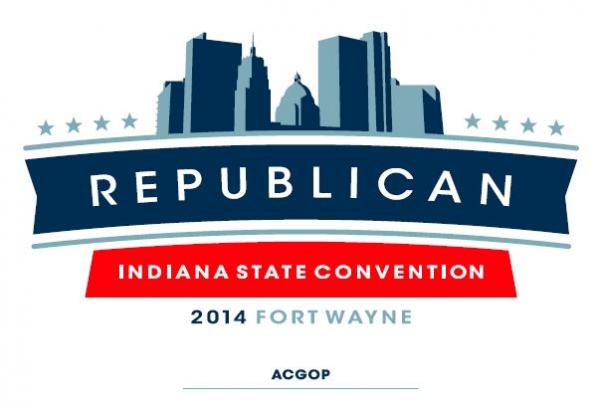A convention delegate may be one of the most underestimated position in American politics, and as Fort Wayne prepares to welcome 2,000 Indiana GOP Convention delegates, we go back to the basics to discuss the important role that delegates hold. And to help explain the process, we sat down with Allen County Republican Chairman Steve Shine to talk about the process.
It was pretty simple to become a candidate for state delegate for the primary election May 6. One just had to be a declared Republican, then file a form that only takes about a minute to fill out - called a CAN-37 form - with the county clerk's office before Feb. 7. Then wait until the primary election to see if you get elected.
While it's a simple process, do not underestimate the responsibility.
Delegates are the voting members of the Republican State Convention. Because Republican candidates for state treasurer, state auditor and Indiana secretary of state are not voted for directly by the public in the primary election, they are voted for by the state delegates at the convention. In other words, the public elects the state delegates in May, and then the state delegates elect the auditor, treasurer and secretary of state in June. Then, whichever candidates are elected at the convention become the Republican nominees for the general election in November.
There is one candidate for state auditor, incumbent Suzanne Crouch; one candidate for secretary of state, incumbent Connie Lawson; and three candidates for state treasurer, financial adviser Don Bates, Indiana treasurer employee Kelly Mitchell and Marion Mayor Wayne Seybold.
So far, delegates have already received campaign calls, emails and notices from candidates all stating their case.
Lastly, delegates also have a hand in voting for the overall 2014 revision of the Indiana Republican platform. The party's platform serves as an official statement of the party's values and typically includes sweeping statements like support for fiscal responsibility.
“A delegate is a very important part of the political process and basically it's the steering wheel for the direction of the state party. The people who are elected to the state delegate positions have their hands on the wheel steering the direction that the party goes,” Shine said.
But this year, the platform will include something more than party fundamentals: it will also open up the same-sex marriage discussion, too. The platform committee of the state party voted recently to include language that supports defining marriage as between one man and one woman.
The last platform approved at the party's 2012 convention did not address gay marriage. Many Republicans and non-Republicans alike wonder if the topics will be divisive for the GOP, but that's what delegates will ultimately have to figure out.
In Shine's opinion, that's one of the great aspects of the position as delegate.
“It's important, at a convention, to bring together all view points, and no viewpoints should be discouraged. It's important that the issue itself has a full vetting and full discussion among the delegates. It's not only appropriate but it's very healthy regardless of the position. There are people in the party that have varying views. I give the party credit of not being afraid, regardless of the position, to allow their delegates and members of the party to express themselves as freely as they wish. The outcome is what it is. The process is important. It's important to have a vigorous, healthy discussion. It's a chance to network with political views, and to get people, both like minded and not like minded, in the same room to work out the platform and the views of the party,” he said.



